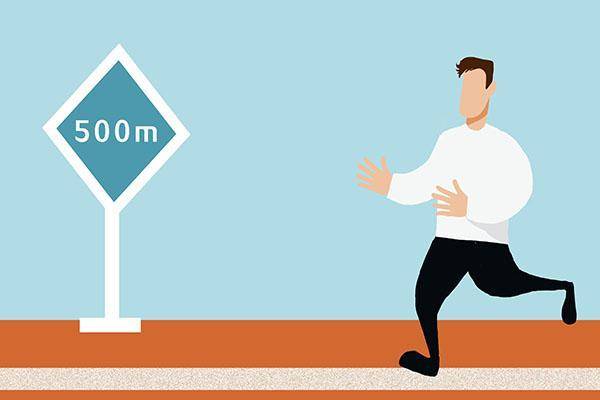If you don’t lose weight in April, May and June will be full of sorrow! Especially for many women who care more about their figure, weight loss has always been something they persist in. With the enhancement of everyone’s health awareness, many people also know that dieting for weight loss is not good. There is no shortcut to healthy weight loss; it’s all about controlling your diet and moving more. It’s hard not to slim down when you do both.
Among numerous exercise methods, running is well-known and the most common. We often see many people running, but some find that even though they run every day, their weight does not change after a while. What’s the deal with this? Without avoiding misconceptions, running more might be in vain. It’s better to understand early on.
Although running burns calories and speeds up fat burning during the process, you may underestimate the calories you intake! The calories you burn from running are actually not significant compared to the calories from snacks you consume. Many people choose to eat something or drink after running, but even that small amount of food could cancel out the calories you burned.
It’s not forbidden to eat after running; it’s about eating the right food. Drinking some plain water and eating a banana is fine, as it can replenish potassium without much impact. But if you consume oily barbecue from a street stall, that would have an effect.
Many people are eager to see weight loss results and think that the faster they run, the better the fat-burning effect will be, and weight loss will be faster. However, this is a misconception. If you start running at a very fast speed, it might promote muscle growth in the legs, affecting the aesthetics of your figure and causing fatigue, making it hard to continue running.
Gradually progress, avoid running too quickly. Running is an aerobic exercise; it’s suggested to opt for jogging, with each session lasting around 30-40 minutes for better fat-burning results.
But it’s also not advisable to maintain the same running speed and method for a long time. If you run at a constant speed for a long time, your body will easily adapt to the rhythm, and you might need less energy than before to complete the run. You can try interval running, running faster for a distance, resting, then repeating a few times. This may boost your metabolism rate and make fat burning more efficient.
Incorrect running posture can also affect the effectiveness of exercise. If you run with your chest sunken and back arched, the muscles you target might decrease, and overall muscle stretching won’t be effective. Consequently, the rate of calorie and fat consumption will naturally slow down, making weight loss less effective.
The correct running posture should be: slightly leaning forward, landing on your forefoot when running, allowing your arms to swing naturally according to your running pace for better fat burning and slimming effects.
The timing of running is also crucial. Many young people are busy during the day and only have time to exercise at night, making night running popular. However, if you run too late, like at 11 p.m., the effect might be greatly reduced, affecting normal metabolism and sleep. It’s recommended to finish running two hours before bedtime for better results and to avoid sleep disturbances.
Overall, although running is an effective way to burn fat and helps with weight loss if done consistently, if you don’t avoid the above misconceptions about running, your weight may remain unchanged and could potentially pose risks to your health.


